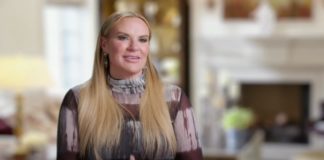In the new podcast Black and Gay, Back in the Day, activist and writer Ted Brown recalls the day he came out. Brown, who went on to be a leading light of the UK branch of the Gay Liberation Front, had spent his early life in the US and moved to London in his teens with his mother, a Jamaican civil rights activist. At 15, he was “very sad and lonely. I told my mother, ‘Mum, I think that I am becoming homosexual.’ That was the only term I knew in those days. I didn’t know any gay people.” His mother was accepting, though she cried when she realised her son would have to grow up dealing not only with racism but with homophobia too.
Released to coincide with UK Black History Month and conceived by the campaigner and podcaster Marc Thompson, Black and Gay, Back in the Day unearths the LGBTQ stories of the past via a single photograph. The opening episode features a picture of Brown in 1973. He is sitting on a bicycle in a leather jacket and flared jeans, a copy of Gay News, the magazine where he worked as a writer, clipped on the back of his bike. Now in his seventies, Brown talks to the young journalist and producer Abi McIntosh about his experience of growing up black and gay, and about queer representation in the media. Along with telling the stories behind certain images, the series’ objective is to pair black LGBTQ elders with their younger counterparts in conversation, a smart idea that makes room for veteran voices and draws a clear line between past and present.
The second and newest episode revolves around a photo of three black women, all members of the Black Lesbian and Gay Centre, marching against Section 28, a law passed in 1988 that prohibited the “promotion of homosexuality” in schools. Here the campaigner Fopé Ajanaku tracks down one of the women, Femi Otitoju, in Haringey, north London, who was working in local government at the time. In a warm and wide-ranging talk, the pair talk about the importance of galvanising local communities to the anti-racist cause and their battles against the assumption that people of colour are more likely to be homophobic. Looking at the picture, Otitoju says it reminds her how rights can be so easily taken away and that “we should never get complacent.”
Another newly launched podcast, Black British Lives Matter, is described by its host, British actor and comedian Lenny Henry, as “jollof rice for the mind, jerk chicken for the spirit”. It finds Henry and the writer Marcus Ryder leading conversations about what it means to be black in Britain today. In the opening episode they are joined by fashion designer Ozwald Boateng, the journalist and presenter Afua Hirsch and the academic and curator Carol Tulloch for a smart and thoughtful chat about fashion and black identity.







